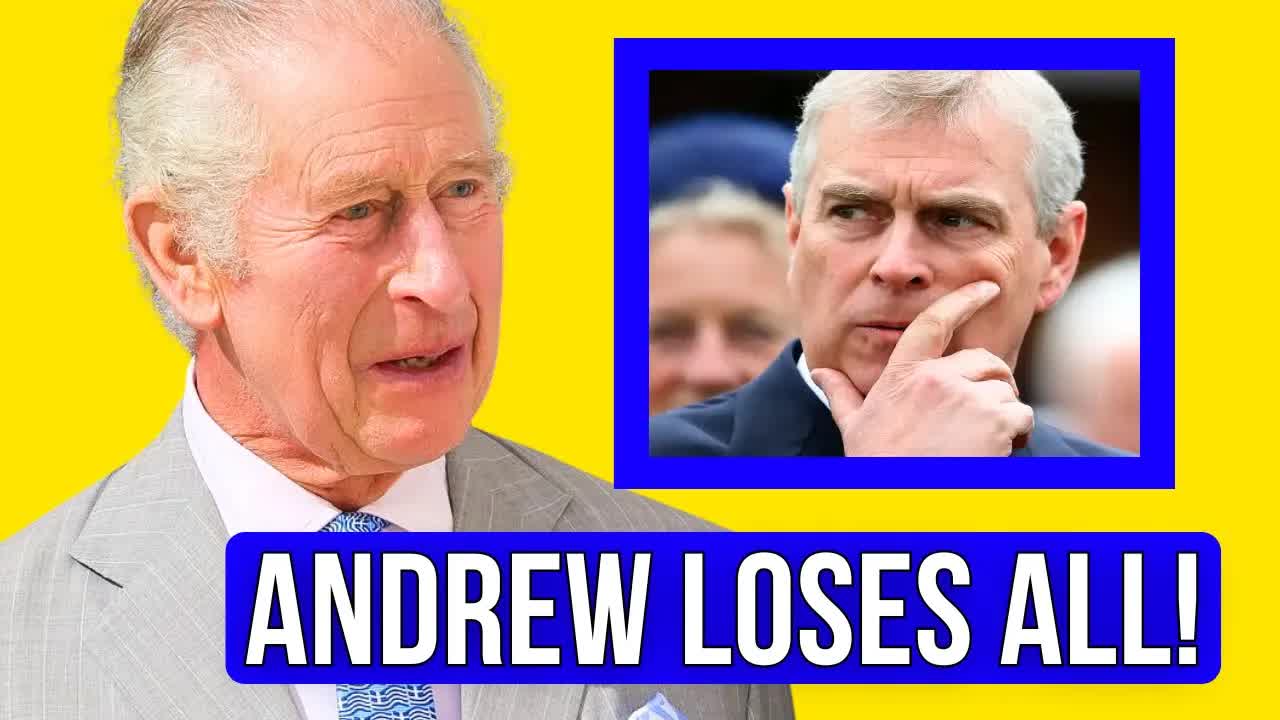In a move that has sent ripples through the British monarchy, King Charles III has officially evicted his brother, Prince Andrew, from the royal lodge.
This decision marks a definitive end to Andrew’s official ties with the royal family—a stark contrast to the prominence he once enjoyed.
The implications of this eviction are profound, reflecting not only Andrew’s tumultuous past filled with scandal but also King Charles’s vision for a modernized monarchy that prioritizes integrity and accountability.
Andrew’s fall from grace has been a long time in the making, largely due to his connections with convicted s offender Jeffrey Epstein.
These associations ignited a public outcry, particularly following a disastrous BBC interview in 2019, where Andrew attempted to minimize his involvement but instead fueled outrage and disbelief.
Legal troubles soon followed, culminating in a significant settlement with Virginia Giuffre, one of Epstein’s accusers, in 2022.
This settlement, reportedly worth millions, not only drained Andrew’s finances but also marked a definitive shift in his standing within the royal family and the public eye.
The passing of Queen Elizabeth II has further exacerbated Andrew’s isolation.
Historically, she provided him with financial and familial support, but without her, he finds himself increasingly vulnerable.
His escalating legal fees and other expenses have made it difficult for him to maintain his lifestyle, especially amid heightened scrutiny on royal spending.
In this context, King Charles’s decision to remove Andrew from the royal lodge is about more than just distancing the family from disgrace; it’s a calculated step toward reshaping the monarchy.
Since taking the throne, King Charles has been actively implementing reforms aimed at streamlining the royal institution.
His focus is clear: to create a monarchy that is transparent, accountable, and reflective of contemporary values.
By concentrating on senior members like the Prince and Princess of Wales, Charles is signaling to the British public that only those who embody duty and respectability will represent the monarchy moving forward.
This new approach sharply contrasts with the past, where personal ties often allowed individuals like Andrew to retain privileges despite their actions.
Now, reputation plays a critical role in determining one’s place within the royal family.
The eviction also highlights the complex relationship between Charles and Andrew, which has reportedly been fraught with tension.
As brothers, they have clashed over royal duties, and Andrew’s repeated scandals have only deepened the divide.
For years, Queen Elizabeth acted as a mediator between her sons, balancing her responsibilities as a monarch with a mother’s care.
However, in her absence, Charles appears resolute, unwilling to compromise when it comes to the monarchy’s image.
The eviction serves as a clear message not only to Andrew but to all royals: any association with scandal will no longer be tolerated.
Public reactions to Andrew’s eviction have been mixed.
Some view it as a necessary step towards accountability, while others express sympathy for a man who was once regarded as a beloved prince.
Andrew’s military service in the Falklands War and his numerous honorary titles earned him respect, but that legacy now lies in tatters, overshadowed by his controversies.
The media has played a pivotal role in shaping public perception, with relentless coverage amplifying Andrew’s downfall and highlighting each phase of his legal struggles.
His recent ousting has reignited discussions around royal accountability, expenditures, and the monarchy’s relevance in today’s society.
Amid these shifts, Charles’s firm stance represents an effort to future-proof the monarchy by adhering to values that resonate with the public.
However, the ongoing sensitivity surrounding royal spending—especially during economically challenging times—creates a delicate balance for the monarchy.
While Andrew’s removal may be seen as a symbolic gesture, it raises deeper questions about the institution’s role in modern Britain.
Ultimately, Prince Andrew’s eviction is more than just a personal consequence; it symbolizes a monarchy in transition, evolving to meet the expectations of a contemporary society.
His dramatic fall serves as a reminder of the heavy toll that scandal can take, while King Charles III’s decisive actions reflect a commitment to protecting the monarchy’s reputation—even if it means making difficult sacrifices within his own family.










